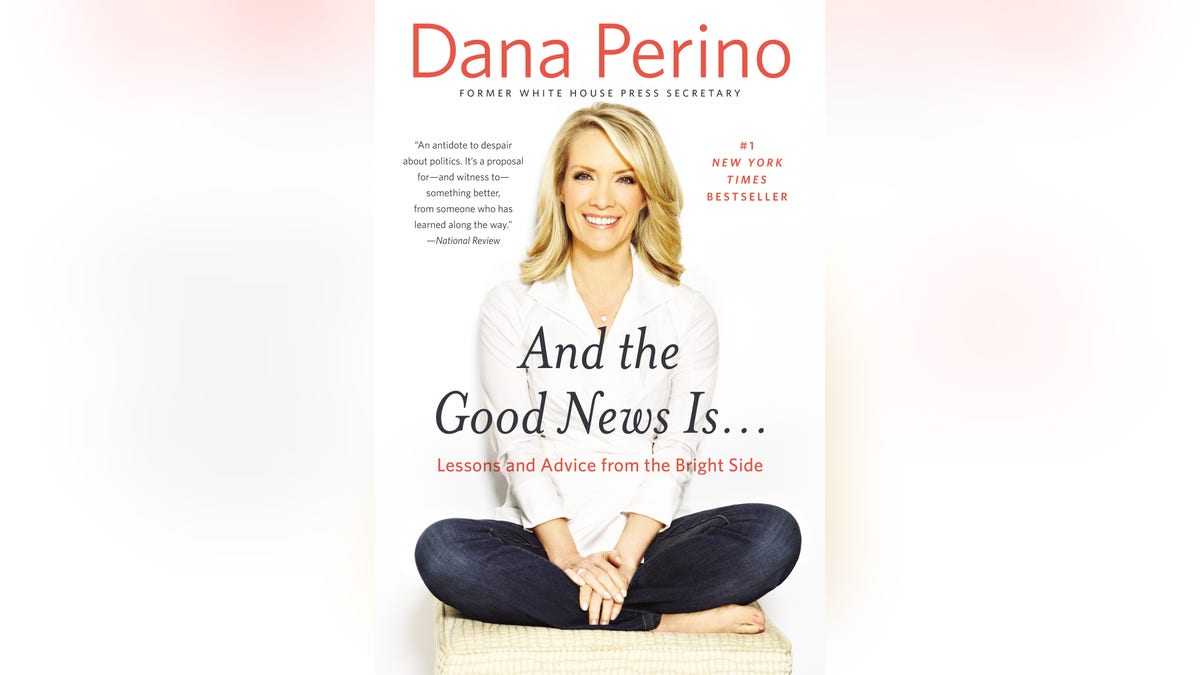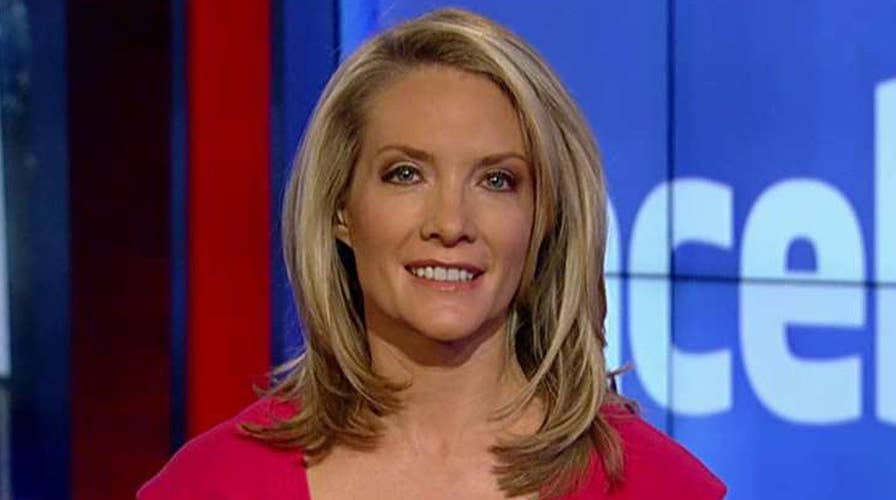Dana Perino prepares to meet with Facebook over media bias
'The Five' co-host previews conservative conference with CEO Mark Zuckerberg on 'America's Newsroom'
Editor's note: On Wednesday, May 18, Dana Perino, former White House Press Secretary and co-anchor of Fox News Channel's "The Five," will participate in a meeting with conservatives at Facebook's headquarters in California.
The following is an excerpt from her book, “And the Good News Is…” that explains how she realized she was a conservative and how that's helped her organize her thoughts and her life.
Why am I a conservative?
That’s a question I get a lot. I don’t know if liberals are ever asked to explain themselves, as if liberalism is a natural state of being and conservatism is an aberration that must be examined and defended.

Usually when I’m asked this, it’s with some sort of disbelief or even disdain: “How could you possibly be a Republican?”
It actually comes quite easily to me.
I don’t know if people are born with a worldview or if their thinking is a product of their environment. Many university studies are being done to figure that out (probably with the hope of finding a cure for conservatism). The answer is probably a little bit of both.
Like most conservatives, my path was a bit meandering. I grew up around people who mostly held conservative or libertarian views. The liberals I knew were fairly quiet about it, or at least I don’t remember it being very heavy-handed. At the time I didn’t know how liberal the media was, but looking back at clips, I’m amazed that after all the news I consumed, I still emerged as I did.
The first presidential election I really paid attention to was in
1988 when George H. W. Bush ran against Michael Dukakis. I grew up admiring Ronald Reagan and Vice President Bush, and if I were old enough, I would have voted for 41. I was glad he won.
But four years later when I was in college, I almost voted for Bill Clinton. I went to one of his campaign rallies in Pueblo, Colorado, and I don’t recall what Clinton said but I remember the energy, the music, “I’m Walking on Sunshine,” and all that felt new and optimistic. It felt like hope . . . and, well, change (I later learned this is what all campaigns try to make you feel— no one runs on despair and the status quo). There was no substantive reason for supporting Clinton in my mind—it was more about wanting to feel reinvigorated, something new. Which, I learned later, can be very seductive. And dangerous.
My first Presidential election vote was important to me. It was a big moment, and I thought my decision would determine something about my future (that if I voted for one party, I’d be wedded to that party forever— which is nonsense, but I was dramatic about it). So I started reading a bit more about the policy positions and took part in the debates about the two candidates in my political science class.It was a tough call, but in the end I voted for 41. I trusted him. I was disappointed when he lost.
My politics didn’t define me then, but because of my interests and what I do for a living, it somewhat does now. When I first left college and worked in the news business for a while, I hid my conservatism. I didn’t want to start fights with people who had visceral reactions against conservatives. I even wondered, “What is wrong with me?”
But after I read Peggy Noonan’s book, I found my ideological footing and increasingly gained confidence in my beliefs. Gradually, I shook off my fear of talking about it.
I’m a conservative because everything else seems easy by comparison. And when something is too easy, it’s too good to be true or it’s sure to fail and disappoint. I wasn’t impressed by the alternatives to conservatism—I gravitate to facts, logic, and reality, whereas to me, liberalism is based on theory, and feelings, and fantasy.
I respect tradition, learn from history, and adhere to a code of ethics that has helped me make sense of the world. By definition, then, I reject situational ethics. I have standards, and I stick to them. For instance, conservatism is where I can fully express my support in the individual rather than the state, and where my belief in self- governance and responsibility isn’t in conflict with policies I support.
Far from limiting what I can do or think, being a conservative gives me great freedom. I govern my thoughts by a set of principles. I will listen to arguments, even be persuaded by them—
I’m willing to be convinced, but you have to prove it to me. Sanctimony and cynicism don’t change my mind—proof does.
And while everyone’s principles differ, I find that most conservatives share my approach. In my experience, liberals have to check a lot of boxes to be included—“ do you believe this, that, and the other”— and there’s a rigidity that gives them very little room towin arguments. They are doctrinaire and rely on sanctimony while ignoring facts. I find that very unattractive. And when the facts on the ground don’t match up to reality, that’s when I’ve experienced liberals lashing out at conservatives for being “mean,” as if that’s going to solve anything. These are like arguments that children have with their parents— conservatives are mean because they deny a third scoop of ice cream. But feelings don’t change facts, and it is not “mean” to point them out. I want hard, practical truths— and then I apply my principles to them.
Conservative caricatures are everywhere in the media, but the descriptions of angry, cruel, old-fashioned conservatives just do not match my experience. I find most conservatives to be cheerful and clear- eyed, which really irritates a lot of liberals. Of course, almost everything irritates a lot of liberals, nothing more so than a happy conservative. Which is why I always smile and say hello when I’m proudly wearing my George W. Bush Institute jacket around New York City. I love it when people do a double take when they see it.
Being a conservative does not mean I reject compromise. My nature is to seek agreement, to bring people together, and to help them see that they have more in common than they think. I believe that’s a better way to win arguments. And I’ve always found much more “give” in this area among conservatives than among the Left.
Conservatism by its very nature is compassionate— that’s one of the things that drew me to President George W. Bush. Conservatives are charitable, forgiving, and are always— always— more willing to laugh at themselves (and yes, we have plenty to laugh at). I understand why some conservatives rejected his phrase of “Compassionate Conservative”— perhaps they found it redundant— but that spoke to me, and it opened the door for me to be more active in participating in the public arena.
Being a conservative has given me clarity. And it’s given me freedom— my mind is free; therefore, my heart is lighter. And that’s a gift from God that I believe we have an obligation to share with others around the world.
Besides, I love to be right. Just ask Peter.
From the book AND THE GOOD NEWS IS…: Lessons and Advice from the Bright Side. Copyright (c) 2016 by Dana Perino. Reprinted by permission of Twelve/Hachette Book Group, New York, NY. All rights reserved.









































